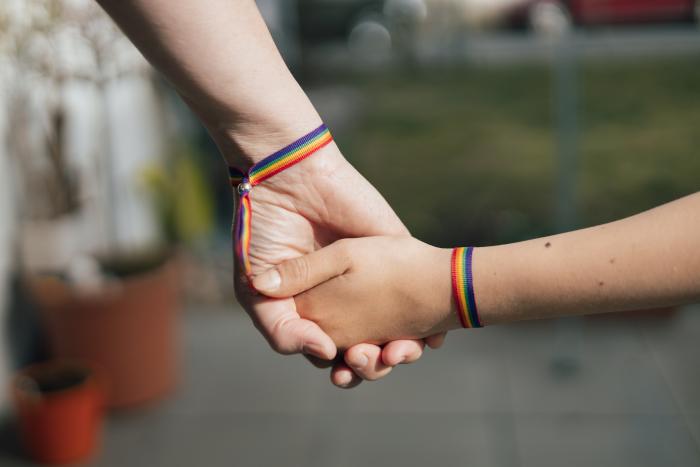Alumni Researchers Link Family Rejection to Mental Health Concerns among LGBTQ+ Asian Americans
Family rejection can lead to a cascade of other internal struggles that negatively impact the mental well-being of LGBTQ+ Asian Americans, according to a new study published in the American Psychological Association journal Cultural Diversity and Ethnic Minority Psychology.
The authors, all alumni of the University of Maryland’s Department of Psychology, note that family rejection’s negative impact on the mental health of LGBTQ+ individuals is generally understood. However, their online survey of 155 Asian American adults between the ages of 18 and 56 is among a small list of studies focused specifically on family rejection’s influence on Asian American members of the LGBTQ+ community, and it sheds new light on this issue.
“We know that familial contexts in general are very important for the healthy development of LGBTQ+ folks. Especially within Asian American communities there are particular cultural norms that exist around the importance and centrality of family,” said lead author M Pease, B.S. ’22, a Ph.D. student in the counseling psychology program. “There are these unique experiences at the intersections of anti-LGBTQ+ and anti-Asian oppression within society that manifest in familial experiences of rejection that can be addressed. Recognizing that there are these unique intersectional dynamics at play can really help enhance the types of supportive and affirming services that we can make available to LGBTQ+ Asian Americans.”
With the analytic expertise of co-author Lydia HaRim Ahn, Ph.D. ’22, Pease and second-author Thomas P. Le, Ph.D. ’23, found that LGBTQ+ Asian Americans who experience family rejection often also feel that their identities—as an Asian American and as a member of the LGBTQ+ community, for example—are incompatible. This is an experience the researchers collectively call “conflicts in allegiances.”
Respondents who said they experienced conflicts in allegiances also reported feeling shame around not meeting family expectations. This shame was positively associated with psychological distress, measured by the Kessler-6, a widely-used screener for mental health concerns that asks participants to share how often they experience feeling “worthless,” “restless,” “nervous,” “hopeless,” and that “everything was an effort.”
Looking at the big picture, Pease said the study shows that there is still a lot to be learned about the nuanced ways in which LGBTQ+ individuals’ unique identities and experiences impact their health.
“A limitation of this paper is that there are a lot of different experiences across sexual orientations, gender identities, and Asian American ethnic groups. For example, I’m Filipino, and my experiences are going to be different from those of people with East Asian ethnicities. Our community is not a monolith,” said Pease, who as an undergraduate received $3,000 from the BSOS Summer Scholars Program and $500 from the Dr. Dennis F. Marion Undergraduate Mental Health Research Award program to conduct this study. “My hope is that this study inspires future research that honors the diverse experiences of the community, such as work that looks at subcommunities of LGBTQ+ Asian Americans as well as work that looks at protective factors, strengths, and joyful experiences, helping the field advance intersectional social justice for marginalized communities”
Photo of a mother and daughter wearing rainbow bracelets and holding hands is from iStock
Published on Fri, Mar 1, 2024 - 9:36AM




